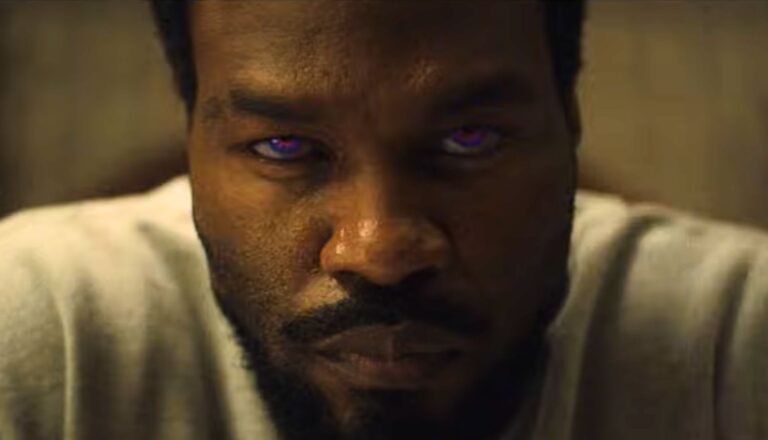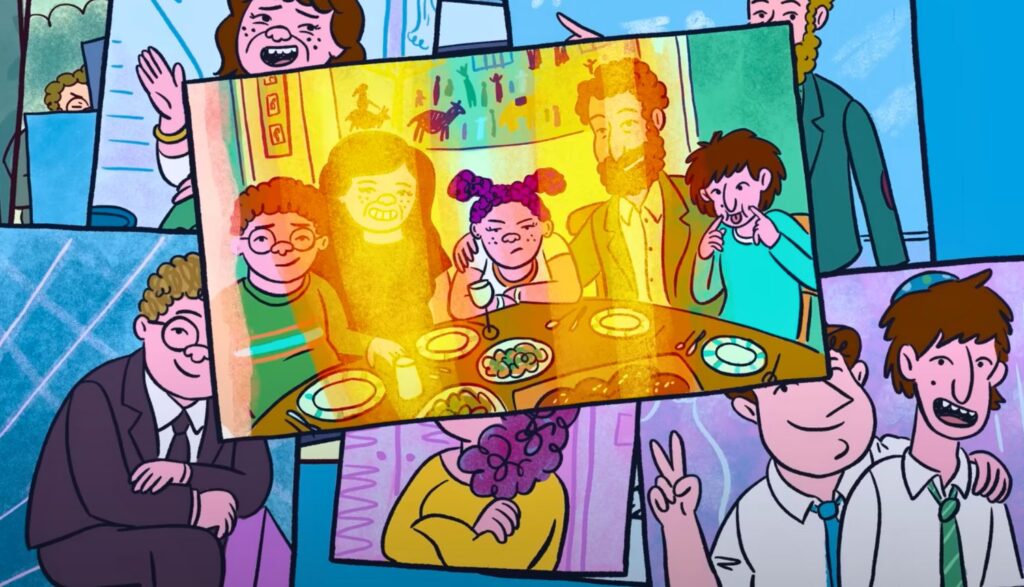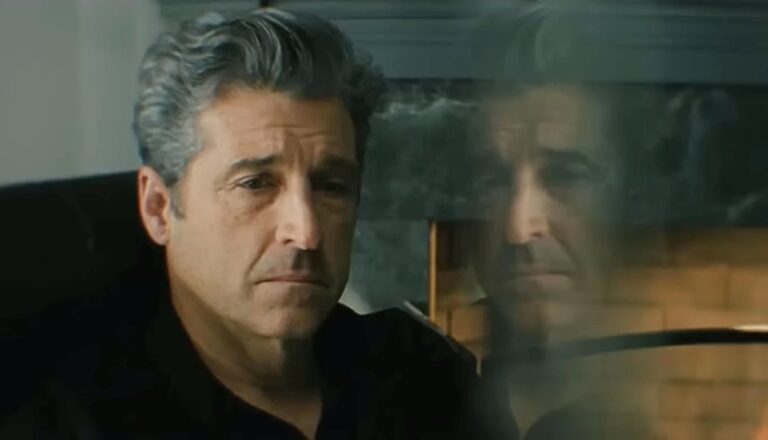
Wonder Man
For a superhero show, ‘Wonder Man’ is surprisingly light on violence, but a bit heavy on swearing, sexual allusions and meta-Hollywood references.

The youngest Schwooper, Yoshi, worries that God doesn’t exist while sitting in a cramped closet high on marijuana. It’s a bad place to be when you’ve just read from the Torah for your bar mitzvah, but no one expects that the boy will eventually become the Orthodox black sheep of the family.
Years later, middle child Shira Schwooper, stresses about whether providing her kids with a Jewish education is worth the 40-minute drive.
And at some year in between, Ari Schwooper, the oldest of the bunch, marries Jen, a Gentile woman. And as he spends more time away from his family, he begins to fall away from practicing (and believing in) the typical Jewish traditions.
Jewish identity is deeply rooted in the Schwooper family. And even when the children begin to drift away from their family’s religious identity, they find that their culture and traditions frequently pull them right back in—even if it’s just to hear about dad’s broken-down hot tub or how mom’s upset with yet another thing she thinks they’ve done wrong.
And as the children grow up and become adults with their own families, jobs, desires and struggles, they’ll look back and consider how their Jewish upbringing has influenced their lives.
Long Story Short tells the story of the Schwooper siblings throughout the years of their lives. Episodes jump non-linearly from one period of time to the next, sometimes hopping 30 years in the future or past as characters deal with related struggles. We see how these moments have come to change them; we see how they work through when those changing times take people from them.
The show, created by the same mind behind BoJack Horseman, is steeped in Jewish culture and belief as we follow this particular family throughout their years. They largely fall under Conservative Judaism (in between the more traditional Orthodox and the more liberal Reform expressions of the Jewish faith). More specifically, mother Naomi describes her family as “progressive, egalitarian, conversative.” For example, they’ll lament when Jen accidentally uses fleishig sponges to clean dishes that had dairy on them (based on a Jewish interpretation of Exodus 23:19 which prohibits mixing meat and dairy), but they’ll still affirm Shira marrying another woman.
And, like the horseman-centric series which came before, Long Story Short comes with its own dose of strangely humorous melancholy. Though the customs seen and mentioned here will be foreign to most non-Jewish viewers, their family dynamics seem right at home. The dialogue is extremely realistic, with mid-sentence interruptions and strange relative outbursts that make each conversation feel authentic. And as we jump back and forth through time to see how the family adapts and changes, paired with every sweet little lesson or joke is often a wistful reflection on memories of the past.
But before we let this review become too long, let’s make this story a little shorter and discuss its content.
Long Story Short predominantly focuses on Judaism. Still, the occasional (usually negative) quip about Christianity makes its way into some episodes—including one man who goes to a progressive church that believes in a Jesus who was “mixed race, queer and died of old age.” Likewise, some general comments may offend regardless: for instance, when the cynical Ari claims that Shabbat is God’s day off to get inebriated.
Sexual content is largely spoken about in passing rather than seen on screen. However, a couple of episodes grapple with Shira’s attempts to convince one of her brothers to donate his sperm so that her wife may use it for in vitro fertilization. A later episode ignites further conflict when the donor accidentally ejaculates in his pants (onscreen) hours before he’s supposed to donate. And, as that situation makes clear, LGBT content is front and center.
Illicit drug use (mainly spurred on by Yoshi’s childhood friend) is present, and the occasional crude word is, too.
Long Story Short succeeds in bringing a viewer in and connecting them to its onscreen family—even if that viewer has, like me, no personal relationship to modern Jewish culture. And as the show’s sweeter moments do pop up, the narrative here absolutely thrives. Unfortunately, the series’ often progressive worldview, its sexual content and its crude language will limit its accessibility for families who are concerned about those issues.
(Editor’s Note: Plugged In is rarely able to watch every episode of a given series for review. As such, there’s always a chance that you might see a problem that we didn’t. If you notice content that you feel should be included in our review, send us an email at letters@pluggedin.com, or contact us via Facebook or Instagram, and be sure to let us know the episode number, title and season so that we can check it out.)
In 2004, Ari brings his girlfriend, Jen, to celebrate Yoshi’s bar mitzvah and to meet his family. Meanwhile, Yoshi’s friend convinces him that God doesn’t exist.
Grieving after a funeral, Naomi says that they’ll never see the deceased relative again, since “Jews don’t believe in heaven.” This prompts Ari to say, “You think Jews could have negotiated a better deal.” And when Yoshi smacks Shira, she yells that his actions are why they don’t get to go to that heaven.
In the future, the family drives from the airport, and Naomi comments that the traffic’s gotten so bad that they might miss the coming of the Messiah. After smoking a joint, Yoshi worries that God is mad at him (another teen mocks him for believing in God). After trying to clarify that he only believes in a “God energy” rather than a “God God,” Yoshi then falls into a crisis of faith. “I just read from the Torah, I learned all these prayers, I gave a speech; if there’s no God, what was the point of any of this?” However, an event later convinces him that God is real and upset with him.
We see a bra on the ground. Someone accidentally lights flowers on fire.
The 13-year-old Yoshi smokes a joint with his friend. When he worries about doing so, his friend reassures him: “Like Maimonides [a prominent historical Jewish figure] never got high.” People drink wine.
We hear one use of “b–ch” and one use of “p-ss.” God’s name is taken in vain four times.

Kennedy Unthank studied journalism at the University of Missouri. He knew he wanted to write for a living when he won a contest for “best fantasy story” while in the 4th grade. What he didn’t know at the time, however, was that he was the only person to submit a story. Regardless, the seed was planted. Kennedy collects and plays board games in his free time, and he loves to talk about biblical apologetics. He’s also an avid cook. He thinks the ending of Lost “wasn’t that bad.”

For a superhero show, ‘Wonder Man’ is surprisingly light on violence, but a bit heavy on swearing, sexual allusions and meta-Hollywood references.

The content issues in ‘Memory of a Killer’ aren’t forgettable, but they’re tamer than most other shows in the “double life” genre.

All in all, Netflix’s ‘Finding Her Edge’ could use a bit more sharpening to hone its own edge.

Two families try to recover from a critical loss in the Wonder Project’s faith-tinged ‘It’s Not Like That.’ But the show has more content than you’d expect.